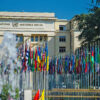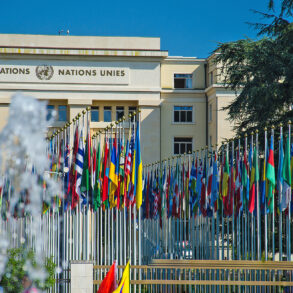What are our dangers or are the discourses still correct?
The following debate contribution is not a relativisation of the real existing extremism among some Muslims or even of terrorist acts that have been committed in the last 20 years. It is equally in the interest of Muslim citizens that the state and society keep a sharp eye on terror and violent ideologies or groups of people. Muslims naturally agree that the state and its organs should keep a sharp eye on corresponding developments and “endangerers.”
At the latest since 11 September 2001, the publicly perceivable debate in politics, experts and the general public on the topic of “security” has (for perfectly understandable reasons) – apart from occasional spurts in dealing with right-wing terrorism in recent years – focused primarily and mainly on Muslims and their religion.
Successively and consistently in the following years, most parts of the strongly growing “Islam debates” were subjected to “securitisation.” From the headscarf to an allegedly “confrontational” prayer by Berlin schoolchildren, to the silent, unamplified call to prayer – much was and is viewed through the lens of national or societal “security” and framed accordingly. This then continued with – rationally debatable – projects such as the professional training of imams, the development of an Islamic doctrine in Germany as well as proper religious education for Muslim pupils in general education schools. German-speaking scholars or Islamic instruction for primary school pupils were and are treated by influential participants in the discourse (such as the conservative CDU/CSU) as an extended arm of security policy and violence prevention.
As a result of the September 11 attacks in the USA and the attacks in Madrid and London, internal and international security structures massively expanded their expertise in relation to Muslims in terms of personnel and material resources. This focus led to the fact that not only other ideological phenomena at home were significantly overlooked (which was to prove fatal with the acts of the NSU complex, the development of right-wing structures within their own ranks and a stochastic right-wing terrorism). The drastic change in the global and geopolitical situation – against the background of cheap energy from Russia and stable markets in East Asia – was not sufficiently considered.
While much of the security policy attention has been devoted to Muslims, Germany (and the EU) have underestimated many times more dramatic threats in recent decades. Thus, Germany’s core competence – a functioning export industry as well as relatively high prosperity – has been made fundamentally dependent on two states. For energy sources and mineral raw materials this was Russia, for sales markets, investments, production, and development China.
The Russia complex has fallen at the feet of German politics and business (which, for example, with its Committee on Eastern European Economic Relations, is hardly the focus of criticism) since 24 February 2022 at the latest. For years, Germany has also been in the Kremlin’s sights, which is indicated on a very marginal level by many Russian flags at right-wing demos. Individual examples of hacking attacks on public institutions hint at what can happen. At this moment, the dramatic change in our energy supply is proving to be a threat not only to the “economy” and “prosperity,” but to internal security itself.
This does not even include the export orientation towards and production of the German economy in China. It was well known that Beijing has been buying its way into relevant industries as well as resource-rich regions of the global South for years, and that it has been getting its way with generous “aid.” It was also known that in parts of its own country, goods from German producers are also manufactured with the help of forced labour. It was not until the dispute over the sale of shares in the Hamburg port company HHLA to the Chinese state-owned company Cosco (whose European headquarters are in the Hanseatic city) that Germans became more broadly aware of the influence Beijing is striving for and already has.
Now, a neo-imperial Russia is engaged in a bloody war against Ukraine. The superpower China is not only worrying its direct neighbours. Nationalist-religious regimes like in Iran or India (which will be the most populous country in the world by 2050) are flexing their muscles and populism as well as nationalism of strong “leaders” is successful in states from Brazil to the Philippines. Even states that are close to and considered stable under the rule of law, such as the USA, Great Britain, Italy, or Sweden (beyond economically hard-pressed Eastern Europe) are experiencing systemic crises in their politics, the outcome of which is uncertain.
The continued creation of artificial “threats” through teachers’ headscarves, calls to prayer, halal meat or ominous “mosque financing” in the face of real dangers is politically and ethically inappropriate. It also seems grotesque when, at the latest since the outbreak of the pandemic in certain regions of our country, thousands/ten thousands of citizens demonstrate every Monday against “dictatorship” and “traitors to the people,“ demanding prison for and violence against elected parliamentarians or marching in front of their homes.
How would the Republic react if the notorious Neukölln “headscarf girls” (in Berlin) did so?











